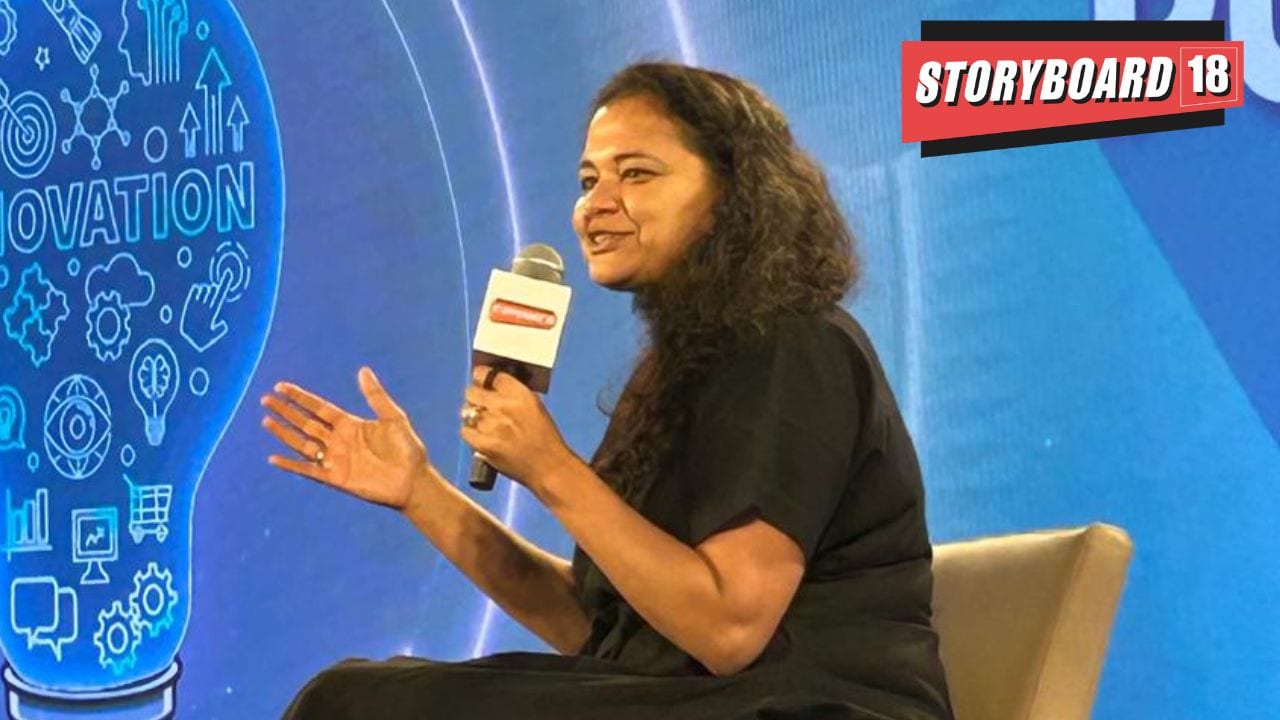At Storyboard18’s Global Pioneers Summit on March 28, Prabha Narasimhan, managing director and chief executive of Colgate-Palmolive (India), reflected on the company’s enduring legacy and its ability to navigate shifting market dynamics in an increasingly complex consumer landscape.
Narasimhan, who assumed leadership at Colgate two years ago, acknowledged the deep personal and professional significance of the brand. “I’ve grown up with this brand. It has been part of India’s oral care journey for 87 years, leading the category from the very beginning. Sustaining that leadership in an environment marked by rapid change is no small task.”
Central to Colgate’s continued success, she said, is its foundation in scientific research. “I don’t believe any other oral care brand globally invests as much in understanding the science of the mouth—teeth, gums, and overall oral health,” she remarked. “That research informs our products at every level.”
One example is the company’s widely used Colgate Strong Teeth, which employs arginine technology to fortify teeth and prevent cavities. “This innovation isn’t reserved for premium lines. Science drives our entire portfolio,” she emphasized.
Narasimhan noted that consumer awareness has transformed significantly. “In the early days of oral care in India, the primary goal was simple: prevent cavities so a child can attend school without pain. That remains important, but expectations have evolved. Now, consumers seek fresh breath, whiter teeth, protection against gum disease, relief from sensitivity—the list keeps expanding.”
She also pointed to a broader cultural shift—oral care as an extension of beauty. “People notice your eyes first, but then they see your smile,” she said. “As a result, we’re witnessing growing demand for products that enhance aesthetics as well.”
Engagement, she argued, is as critical as product development. “With media fragmentation, traditional broad messaging no longer suffices. We must shift from monologue to dialogue, engaging consumers where they are.”
Colgate’s commitment to innovation, she said, does not come at the expense of trust. Every product undergoes rigorous clinical testing. “When we say something works, we are 100 percent certain. While consumer needs evolve, the science advances even faster. A mother’s desire to prevent cavities for her child hasn’t changed—but the way we deliver that assurance has.”
Narasimhan also addressed the challenges of making oral care both sustainable and accessible. “India is complex—you can’t generalize it. It’s like averaging the depth of a river,” she said. “We design for different consumer cohorts. At the base of the economic pyramid, we offer affordable, scientifically-backed ₹10 packs in recyclable tubes. Sustainability is non-negotiable. At the premium end, we cater to specialized needs like gum care and whitening. But across all tiers, quality and sustainability remain constants.”
A key sustainability milestone for Colgate has been its pioneering development of recyclable toothpaste tubes—technology the company has made open-source. “Unless all brands adopt recyclable tubes, the system won’t work. Doing the right thing should not be about scorecards—it’s about responsibility.”
She also acknowledged the balancing act of running a purpose-driven business while ensuring profitability. “At Colgate, our mission is to improve oral health for everyone. One of our flagship programs, Bright Smiles, Bright Futures, has been running for over five decades, educating children on brushing, nutrition, and the dangers of tobacco use. We’ve reached over 180 million children through this initiative. When we build oral care habits, we build lasting consumer relationships. That’s the sweet spot.”
Narasimhan believes the global market has much to learn from India. “Agility is essential. Take the rise of quick commerce—last year, it was barely a presence; today, it’s booming. We adapted our portfolio for this channel within months. Frugality is another strength—we operate with an efficiency mindset, much like India’s space program, ISRO. And then there’s the never-say-die attitude. Markets fluctuate, but resilience keeps us moving forward.”
Reflecting on her transition after 25 years at Unilever, Narasimhan admitted it was an emotional shift. “But Colgate gave me a new purpose. To be part of a company that touches lives every day, in such a meaningful way, has been deeply fulfilling.”
Read More:Largest employer in the world is inefficiency; AI is eliminating that rapidly: CRED’s Kunal Shah
More about the Storyboard18 Global Pioneers Summit
The Global Pioneers Summit is a celebration and exploration of the transformative potential of creativity, empowering individuals and businesses to think differently, act boldly, and craft a future that resonates with purpose and vision. Creativity is not just about artistic expression — it is a force for solving real-world problems, innovating products, and creating connections in ways that traditional methods cannot. And there are pioneers behind this shift, who have dared to think different.
The Global Pioneers Summit stands as a premier celebration of the visionary forces propelling businesses forward, spotlighting the global brands emerging from India — an ever-growing hub of creativity and innovation on the world stage.
From groundbreaking innovations to impactful storytelling, key decision-makers and innovators from business, marketing, advertising, tech, and academia exchange insights, build connections, and draw inspiration from some of the most compelling work driving industries forward globally.
In today’s rapidly evolving world, creativity can be a powerful force to drive business growth, shape industries, and influence societal behavior, culture, and values. Storyboard18 Global Pioneers Summit puts the spotlight on the true purpose and power of creativity and the pioneers leading the way.
